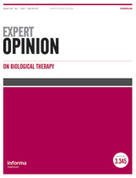Abstract
With optimal target antigen selection antibody-based therapeutics can be very effective agents for hematologic malignancies, but none have yet been approved for myeloma. Rituximab and brentuximab vedotin are examples of success for the naked antibody and antibody–drug conjugate classes, respectively. Plasma cell myeloma is an attractive disease for antibody-based targeting due to target cell accessibility and the complementary mechanism of action with approved therapies. Initial antibodies tested in myeloma were disappointing. However, recent results from targeting well-characterized antigens have been more encouraging. In particular, the CD38 and CD138 targeted therapies are showing single-agent activity in early phase clinical trials. Here we will review the development pipeline for naked antibodies and antibody–drug conjugates for myeloma. There is clear clinical need for new treatments, as myeloma inevitably becomes refractory to standard agents. The full impact is yet to be established, but we are optimistic that the first FDA-approved antibody therapeutic(s) for this disease will emerge in the near future.
Via Krishan Maggon



 Your new post is loading...
Your new post is loading...










Volume 29, Issue 2, March 2015, Pages 81–91
REVIEW The development of potential antibody-based therapies for myelomaDaniel W. Sherbenoub, c, Christopher R. Behrensa, Yang Sua, Jeffrey L. Wolfb, c, Thomas G. Martin IIIb, c,Bin Liua, c,